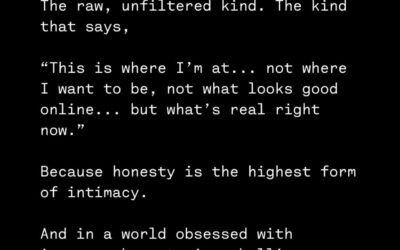In the intricate world of business, understanding and navigating personal judgments is not just a skill but a necessity. Every day, professionals face the challenge of interacting with a diverse array of personalities, backgrounds, and levels of self-awareness. The clash between those who are highly self-aware and those who remain unaware of their impact can lead to misunderstandings, missed opportunities, and often, chaos.
The Impact of Perceived Understanding Without Dialogue
Judgment often stems from a perceived understanding of others, which is rarely based on complete information. In business, where decisions are made quickly and first impressions carry weight, professionals may form opinions about their colleagues or potential partners without engaging in meaningful conversation. This lack of communication can create barriers that hinder collaboration, innovation, and growth.
For instance, a manager might perceive a team member as uninterested or lazy because they do not speak up in meetings, without realizing that the individual may simply process information differently or may not feel confident speaking in large groups. Such judgments can prevent a team from fully utilizing its collective talents.
The Cost of Staying Stuck in Our Opinions
Staying entrenched in our opinions without seeking deeper understanding can be particularly detrimental in the business environment. When we assume we know the motivations or capabilities of others without engaging with them, we risk creating an environment where true potential is never realized.
Consider a scenario in business dealings where one party is highly conscious and self-aware while the other party remains unaware of their own social or emotional footprint. The interaction can become fraught with misunderstandings and frustration, leading to poor outcomes for both parties involved. Instead of synergy, there is conflict; instead of cooperation, there is competition.
Focusing on Personal Paths and Responsibility
It’s vital to remember that we are not responsible for someone else’s journey—only our own. In business, this means focusing on personal development and leading by example. Cultivating self-awareness not only enhances our own performance but also encourages a more thoughtful and inclusive atmosphere. By being present and aware of our own actions and reactions, we can better navigate the complexities of human dynamics in business.
The Power of Presence and Space
Giving space to others, especially those who may not be fully aware of their impact, allows for a healthier business environment. When we are present and less reactive, we create opportunities for growth—not just for ourselves but for our colleagues and partners as well. This approach does not mean accepting poor behavior or detrimental business practices, but rather fostering an environment where constructive feedback is welcomed and where personal growth is supported.
Harnessing Opportunities Through Conscious Business Practices
When business leaders prioritize self-awareness and encourage their teams to do the same, the organization as a whole stands to gain. Teams that are conscious of their dynamics and the individual strengths and challenges of their members can harness their collective potential more effectively. This leads to better decision-making, more innovative solutions, and a competitive edge in the market.
Moreover, in an era where corporate responsibility and ethical practices are more scrutinized than ever, being a conscious business can enhance your reputation and appeal to a broader base of clients and partners who value transparency and integrity.
Change Begins Within
The journey towards reducing judgment and enhancing self-awareness in business is ongoing and requires commitment. However, the benefits of such an approach are clear. By focusing on personal development and understanding, professionals can break down the barriers of judgment, leading to a more productive and positive business environment. Remember, true change starts from within, and its ripple effects can transform not just individual careers but entire organizations.




0 Comments